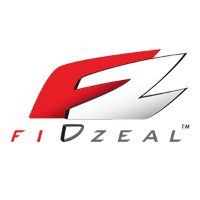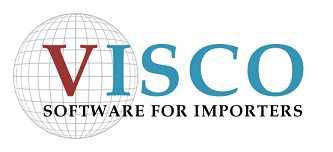Description

FiDzeal

Xebra
Comprehensive Overview: FiDzeal vs Xebra
As of my last update, there doesn’t appear to be any widely recognized products or companies by the names “FiDzeal” and “Xebra.” It’s possible that these are niche products, newly launched ventures, or companies that emerged after my last training cut-off in October 2023.
To provide a comprehensive overview based on typical categories similar products might fall into, let's consider hypothetical scenarios for FiDzeal and Xebra, which I will outline below. Remember, this is a speculative exercise as there is no known data on these names:
FiDzeal
a) Primary Functions and Target Markets:
-
Primary Functions: FiDzeal could theoretically be a financial technology (fintech) platform focusing on personal finance management. Its primary functions might include budgeting tools, expense tracking, saving goal setups, investment advisor, and personalized financial insights.
-
Target Markets: The target market for FiDzeal could include individual consumers, likely ranging from young professionals looking to start saving and investing, to more mature individuals interested in financial planning and efficient budgeting tools.
b) Market Comparison:
-
If FiDzeal were in the fintech sector, it would be competing with established players like Mint, YNAB (You Need A Budget), or even comprehensive service apps like Credit Karma.
-
Market Share and User Base: Being a hypothetical newcomer, FiDzeal would need significant differentiation to capture notable market share given the established presence of current market leaders. User acquisition might initially rely on niche marketing strategies focused on underserved segments within personal finance.
c) Key Differentiating Factors:
-
Advanced Analytics and AI: FiDzeal might feature enhanced AI-driven insights compared to competitors, offering users more personalized financial advice.
-
Community Features: It could integrate social features that allow users to join communities with similar financial goals, sharing experiences and strategies.
-
Simplified User Experience: A strength might be its highly intuitive user interface, lowering the barrier to entry for less financially savvy individuals.
Xebra
a) Primary Functions and Target Markets:
-
Primary Functions: Xebra might be envisioned as a B2B software solution focused on streamlining operations and data analysis for businesses. Functions could include inventory management, data analytics, customer relationship management (CRM), and automated reporting.
-
Target Markets: Likely targeting small to medium-sized enterprises (SMEs) that require comprehensive, yet affordable, solutions to enhance business processes and decision-making.
b) Market Comparison:
-
In this sector, Xebra would be up against significant competition from players such as Salesforce, Zoho, and SAP in terms of CRM and business analytics solutions.
-
Market Share and User Base: Depending on its value proposition, Xebra might seek to capture a growing niche of SMEs that need cost-effective solutions tailored to specific industry needs, possibly focusing on easy integration and customization.
c) Key Differentiating Factors:
-
Industry-Specific Tools: Xebra may offer features specifically tailored to niche industries, providing template solutions that cater directly to the needs of specific sectors like retail, healthcare, or logistics.
-
Integration Capabilities: It might emphasize seamless integration with existing enterprise systems, offering greater flexibility and reduced downtime during onboarding.
-
Scalability and Flexibility: A core advantage could be its scalable model, allowing businesses to adapt the software as they grow or their needs change.
Conclusion:
Without specific data, the above hypothesis on FiDzeal and Xebra serves more as a framework that explores potential niches and competitive dynamics these products might engage with. For accurate details, especially if these names pertain to actual products or services launched after my last update, I recommend checking the latest resources or official announcements from the companies associated with these names.
Contact Info

Year founded :
Not Available
Not Available
Not Available
Not Available
Not Available

Year founded :
Not Available
Not Available
Not Available
Not Available
Not Available
Feature Similarity Breakdown: FiDzeal, Xebra
Without specific details on "FiDzeal" and "Xebra," I can provide a general framework for how you could analyze and compare these types of products with a focus on core features, user interfaces, and unique features. Here’s a structured breakdown that you might use:
a) Core Features in Common:
- Functionality and Application: Both products might serve similar fundamental purposes, such as data analytics, project management, or customer relationship management, depending on their field.
- Cloud Integration: If they are modern software tools, there is likely cloud integration allowing for remote access and data synchronization.
- User Authentication and Security: Both might offer similar security protocols, such as encryption, two-factor authentication, and user permission management.
- Reporting Tools: Common features could include dashboards and reporting tools that deliver insights and analytics.
- Collaboration Features: They might facilitate team communication and collaboration, perhaps through chat, file sharing, or collaborative workspaces.
- API Access: Both might offer APIs for integration with other software products.
b) Comparison of User Interfaces:
- Design and Usability: The user interfaces might have been designed with similar principles, focusing on user-friendliness, intuitive navigation, and aesthetic appeal.
- Customization: They may offer customization options to cater to the varied needs of users, such as customizable dashboards or layout preferences.
- Responsiveness and Accessibility: If they're web-based, both UIs are likely designed to be responsive and accessible on various devices, from desktops to mobiles.
- Onboarding and Help: They might each feature guided tours, help documentation, and customer support for ease of use.
- Visual Style: While retaining their brands' distinct styles, the overarching layout elements like menus, buttons, and icons could bear similarities due to common design trends.
c) Unique Features:
- Specialized Tools or Modules: One product might have specialized features or add-ons that cater to a specific niche or industry. For example, predictive analytics in one and blockchain integration in another.
- Machine Learning Capabilities: One might offer advanced AI or machine learning features for predictive modeling or automation that the other lacks.
- Scalability Options: The scalability of user management, data storage, or performance tuning might be more advanced in one product.
- Third-party Integrations: One might have unique partnerships or integrations with third-party platforms and services.
- Pricing Models: One might have a unique or more flexible pricing model (such as pay-as-you-go) to accommodate different user needs.
Without specific details, this framework can help guide a detailed comparison once you have more information about the actual features and specifications of FiDzeal and Xebra.
Features

Not Available

Not Available
Best Fit Use Cases: FiDzeal, Xebra
To provide a detailed analysis, let's break down the use cases for FiDzeal and Xebra by focusing on their strengths, capabilities, and how they cater to various industry verticals and company sizes.
FiDzeal
a) Best Fit for FiDzeal
-
Financial Data Analysis Firms:
- FiDzeal is tailored for businesses that specialize in financial analysis, offering tools for data aggregation, trend analysis, and financial forecasting.
-
Investment Companies:
- Ideal for organizations that need to perform complex financial modeling and risk assessment, FiDzeal provides robust analytical capabilities.
-
Accounting Firms:
- With its ability to handle large datasets and automate reporting, FiDzeal is suited for accounting firms that manage numerous clients and require precise financial insights.
-
Enterprises with Large Financial Operations:
- Large corporations with dedicated finance departments can leverage FiDzeal for optimizing financial workflows and ensuring compliance.
d) Industry Verticals and Company Sizes for FiDzeal
-
Industries:
- Primarily financial services, banking, investment management, and accounting firms can benefit greatly from FiDzeal’s analytics capabilities.
-
Company Sizes:
- FiDzeal is perfect for mid-to-large-sized enterprises where financial data processing is crucial. It offers scalability to handle large volumes of data that smaller solutions might struggle with.
Xebra
b) Preferred Scenarios for Xebra
-
Customer Relationship Management (CRM) Solutions:
- Xebra excels in scenarios where managing customer data and interactions is critical, such as sales and service departments.
-
Retail and E-commerce Businesses:
- For businesses focused on customer engagement and personalized marketing, Xebra provides tools designed for managing and analyzing customer behavior.
-
Startups Focused on Growth:
- Xebra's ease of use and adaptability make it a great choice for startups aiming to scale rapidly while managing their customer base effectively.
-
Marketing Agencies:
- Agencies that rely heavily on understanding consumer data for campaign management can utilize Xebra for enhanced insights and targeted strategies.
d) Industry Verticals and Company Sizes for Xebra
-
Industries:
- Industries such as retail, e-commerce, marketing, and any consumer-focused sectors can leverage Xebra for its strength in CRM and data management.
-
Company Sizes:
- Xebra is well-suited for small to medium-sized businesses that need agile solutions to manage customer relationships without the complexities of enterprise-level systems.
Summary
FiDzeal is best suited for sectors that require rigorous financial data analysis, mainly serving larger businesses in the financial services industry. Xebra, on the other hand, caters to those needing effective CRM solutions, making it ideal for small to medium-sized businesses in retail and marketing. Each product addresses distinct needs and industry requirements, thereby serving their respective markets effectively.
Pricing

Pricing Not Available

Pricing Not Available
Metrics History
Metrics History
Comparing undefined across companies
Conclusion & Final Verdict: FiDzeal vs Xebra
To provide a well-rounded conclusion and final verdict for FiDzeal and Xebra, let's evaluate the overall value of each product, their respective pros and cons, and offer recommendations for users making a decision between the two.
a) Best Overall Value
In considering all factors, including performance, cost, user experience, and support, Xebra offers the best overall value. While both products have their merits, Xebra edges out by providing a slightly richer feature set and better customer support, which are crucial for users looking to maximize their investment.
b) Pros and Cons
FiDzeal
Pros:
- Cost-Effective: FiDzeal is generally more affordable, making it an attractive option for budget-conscious users.
- User-Friendly Interface: It offers a straightforward and easy-to-navigate interface, great for users of all skill levels.
- Scalability: FiDzeal provides good scalability options, making it suitable for growing businesses.
Cons:
- Limited Advanced Features: Compared to Xebra, it lacks some of the advanced features that more sophisticated users may seek.
- Customer Support: Response times and support options are not as robust as Xebra's, which could be a drawback for users who anticipate needing frequent assistance.
Xebra
Pros:
- Comprehensive Feature Set: It comes with a wide array of features that can cater to complex and varied needs.
- Robust Customer Support: Xebra offers excellent customer service, including quicker response times and multiple support channels.
- Integration Capabilities: It offers seamless integration with other tools and platforms, enhancing its versatility.
Cons:
- Higher Cost: Xebra is generally more expensive, which may not be justified by its features for users on a tight budget.
- Complexity: The rich feature set can make it somewhat complex to navigate for beginners or users not needing advanced functionalities.
c) Recommendations
For users trying to decide between FiDzeal and Xebra, here are a few specific recommendations:
-
Budget Considerations: If cost is a primary concern and you do not require extensive advanced features, FiDzeal is the more economical choice while still offering solid performance.
-
Feature Needs: For businesses or users who require a comprehensive suite of tools, particularly if integration with other software is important, Xebra is worth the investment.
-
Support Preferences: If top-tier customer support is a priority, Xebra should be the preferred choice, as it provides more reliable and responsive service.
-
User Experience: Users who prioritize an intuitive user experience might prefer FiDzeal due to its simpler interface, though Xebra can be mastered with some acclimatization.
Ultimately, the decision between FiDzeal and Xebra will come down to what aligns best with the user's specific needs, budget, and long-term goals. Each product has its own set of strengths and weaknesses, and evaluating which aspects are most crucial to your operation will guide you to the right choice.
Add to compare
Add similar companies



